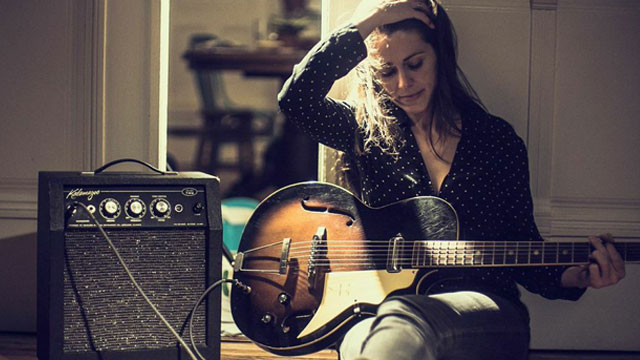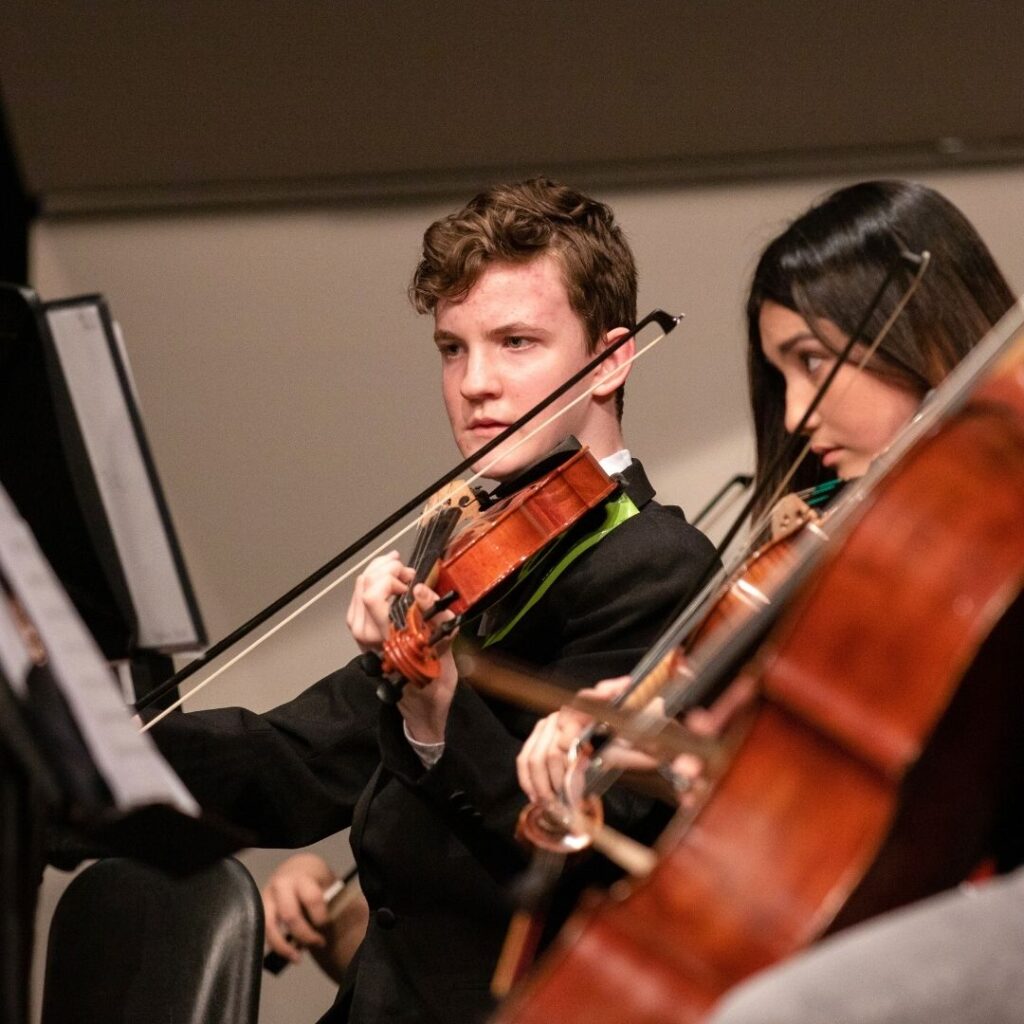
Managing performance anxiety is a necessary skill to develop as a musician and performer. Those sweaty hands, shaky legs, and shaky breath are an experience that most performers feel at some level or another. Some more than others. Other symptoms may include a racing heart, dry mouth, sweats and nausea.
But how do you manage performance anxiety? More performance experience doesn’t always mean less performance anxiety. Even famous professional performers have said, “You may never get rid of the butterflies, but you can teach them to fly in formation.”
Or as we like to tell our students, “You can never get rid of the butterflies, but you can learn to fly with them.”
For most of us who have experienced it, performance anxiety is a feeling of having no control. That sense of no control is what gives us the anxiety. That anxiety, in turn, can have a negative impact and influence on one’s own self-confidence. So how do we gain control of something that feels so out of our control?
Managing performance anxiety as a developed skill
Yes, it’s a skill. And there is an element of practice and time investment when it comes to developing anxiety management skills. There’s no quick cure for it. That being said, a sense of anxiety may never even completely go away. But at least we can learn to do what we can to both calm it down and go with its flow and trust that process.
In this blog
In this blog we will share some things with you on how to improve your own performance anxiety. As performers ourselves, these are concepts that help us when we take the stage. This is by no means an extensive list. It’s simply a collection of a couple of concepts that our music teachers at Martucci Music personally use.
I’m sure a book could be written on all the things that might help a musician or performer with their performance anxiety. But our goal is a little more on the personal level with a few specific tips that we personally use when performing. That being said, we hope you will find some of these points helpful as well!
1. Accept Your Performance Anxiety

There is something to be said about simply accepting one’s anxiety instead of fighting it. It minimizes the stress and tension you would otherwise hold in your body. Since tension is the enemy of performing musicians, we want to eliminate any tension we can.
Therefore, we like to tell our students to remember this simple concept: if you fight ocean waves, you’ll drown. You have to learn to ride waves. So, for example, if you are in your music lesson and you tell yourself, “There’s a wave coming that I can’t stop and I’m going to go with its flow.”, you’ll do better at getting through the symptoms of performance anxiety. Your mindset will be in a healthier place from the start.
Another analogy to remember involves some physics in a car accident. They say that when you realize that an accident about to happen, don’t tense up. If you do, the whip lash could be worse than if you let your body relax. Google it! We’re not lying!
What we’re saying is that you can apply this same concept to managing your anxiety during music lessons or performances. Tell your mind to relax and your body will follow. Just trust it. And again, even trust takes intentional practice!
2. Balance Personal Vulnerability with Objectivity.

This tip is more for those music students who fall on one far side of the spectrum and who tend to take things more personally. If the error is reacting to one’s anxiety too personally, then perhaps practicing objectivity is the protocol for finding a better balance for managing performance anxiety.
Here is a more specific example of a mental exercise for this concept:
Think of Your Instrument as Having its Own Singing Voice
Instruments have a singing voice. Even your voice has a singing voice apart from its speaking voice. It helps to remember to see this objectively. Yes, music technic says that we are “one with our instruments”, but we also make our instruments sing. They need us to make them sing their song.
Your instrument is there with you It is its own person, waiting for you to help it do its thing. Thinking this way can help us feel less vulnerable and alone on stage or during our music lessons in front of our music teacher.
In summary to our second tip, being a performing musician takes a balance of objectivity and personal vulnerability. The idea is to emphasize the side that is your weaker side and start to train yourself towards a healthier balance.
3. Think About Hospitality

This is an interesting one. One of our music teachers said that they learned this from their mother who was not a musician. The concept is, whatever you do in life, do it with hospitality. What is hospitality and how do you apply it to performing?
The ideas around hospitality is “a friendly and generous reception” according to the Merriam Webster’s Dictionary.
When you are performing, as the host, make your audience feel comfortable. Be friendly first and be generous with your friendliness. Host them. Make them feel comfortable. They may be a little nervous themselves. Help them feel welcome. Own the role as host, not as guest. Caretaker, not dependent. This should be an empowering perspective.
4. Breathe

This is the most basic concept for managing anxiety, we know. But instead of focusing on the science of breathing, we’d like to tie this back to tip #1. Breath like you’re accepting that anxiety will come. Tell yourself, “It will be what it will be.” “It is what it is.” “Oh well.”… Breath like that. Simply that.
Sometimes it doesn’t always help to get too scientific about how to breath. However, it is important to know and study proper breathing. But in the moment of performing, thinking scientifically will impede on having fun during your performance. The practice of a good breathing technic should be carefully practiced in your daily routine and during your music lessons in front of your music teacher, not on stage!
Instead, on stage, you let it all go!
Want Personal Coaching for Performance Anxiety?
And there you have it. Four specific tips that we personally use and teach our music students at Martucci Music. If you are looking for more specific personal coaching on these and other tips, please don’t hesitate to reach out to us! It’s our passion to help people become more self-aware and to build self-confidence in their personal music lessons.